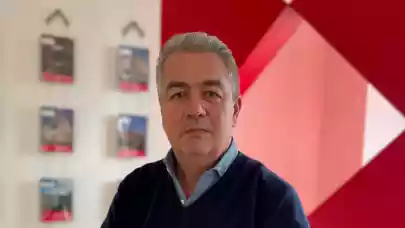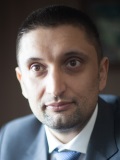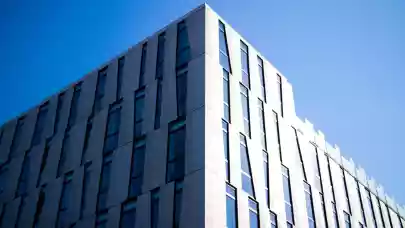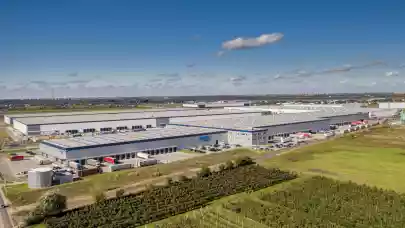
Property Forum talked to Andrew Sim, Managing Director for Europe and Horațiu Florescu, Chairman & CEO Knight Frank Romania, Hungary, Bulgaria, Greece & Serbia, about the segments driving property investments in CEE and the impact of rising inflation and interest rates on transactions.
Knight Frank has expanded significantly in CEE and SEE in the past 2-3 years. What has been your experience so far being represented in all these new markets? Which ones would you say have the most potential for growth?
We expanded in the region in response to demand from our existing clients. It was a bold move to open new offices during the lockdown, but all the new businesses have started to get going. In terms of growth, Belgrade is a very exciting city and we have obviously opened in Serbia for its direction of travel. Also, Greece completes our Mediterranean coverage, which includes Spain and Italy.
For now, we have opened in Greece only the commercial segment. At the same time, in Belgrade, we have the largest number of requests due to the events around us. It is giving us the largest growth definitely for all these offices opened in the last years. The bureaucracy is stable, while the overall market is sophisticated.

Andrew Sim
Managing Director for Europe
Knight Frank
Do you have any further plans for opening more offices in the region?
We are always open to new opportunities. For instance, through the Czech office, we also do work in Slovakia. We do not have an office there, but maybe we could expand in the future. We are in an expansion mode throughout the region. We have got a very long-established Polish business and the same goes for the Czech Republic. We have been in Budapest for a few years, and we want to build this operation as a CEE priority. Within the platform, we want to expand in industrial and residential on a bigger scale than we have already been doing.

Horațiu Florescou
Chairman & CEO
Knight Frank Romania, Hungary, Bulgaria, Greece & Serbia
How was 2021 for Knight Frank in Europe from a business perspective, especially compared to the first year of the pandemic?
In the first year of the pandemic, we were about 5% down as a platform compared to the previous year. We were quite resilient, and the strong capital markets made up for difficult occupational markets, particularly in the office sector, while retail and hospitality were difficult everywhere. This year is our strongest yet for the platform. Generally, real estate has been resilient during the pandemic period and now we have returned on an upward path.
There are reports of a slight slowdown in investment activity since the start of the war in Ukraine. How do you expect geopolitical tensions to impact the market's performance in 2022?
We have seen the international investor community stuttering in its activities temporarily with those markets that border Ukraine and Russia. From Finland down, I hear comments from investors that the investment committees want them to focus elsewhere temporarily. Once investors start feeling more comfortable as to the limit of a particular crisis, I think that interest will return quite quickly. There is going to be a huge rebuilding in Ukraine, while for Russia it will be difficult internationally for many years.
Rising inflation and a pending energy crisis also increase uncertainty. How do you see investors reacting to these challenges?
Inflation was already rising, which in turn is putting pressure on interest rates that are going up across Europe. This is leading to higher financing costs for property acquisitions and developments. We already have experienced investors renegotiating because of increased finance costs in relation to acquisitions. The current dynamic of these key financial indicators is not too severe as to impact the investment activity.
The other aspect of inflation is construction costs, which are for some specific items now incredibly expensive compared with where they were before. The overall development costs are also faltering with new development. It will be fine for developments already underway with fixed price contracts.
One of the biggest questions on everyone's mind is related to the future of offices. How do you see their role in tomorrow's economy? How will the adaptation of flexible workforce management strategies impact demand and new supply?
In occupational markets in Europe, we have rising vacancy rates, but we also have rising levels of activity in every market, so you have got this strange dynamic at the moment. Offices will rebound strongly, but certainly, this hangover of vacancy in secondary offices will have an impact on rents in secondary locations.
It is part of our job to make the office appealing, while there is a role for corporates to increase the attractiveness of the office compared to two years ago. For instance, there are far fewer workstations and more common areas, isolated pods for a mix of online and physical operations.
Residential has become a mainstream investment product in Western Europe and we're seeing signs of similar trends in CEE. What are your projections for the development of this market segment?
The top two sectors on investor lists over the last two years have been logistics and multifamily described as the private rented sector (PRS). Previously, most pan-European investors did not consider residential as part of an institutional sector, except for Germany. Residential will continue to gather pace in the region. Romanians, for example, are homeowners, but so are the Brits and this whole tenanted segment has taken off because there are new generations of people. They have new approaches to just how they structure their lives financially.
ESG is obviously at the top of the agenda of every major real estate company. What's Knight Frank's strategy to increase its ESG compliance in Europe and the region?
The strategy is rather the same everywhere. On the corporate aspect, as good global citizens, we aim to achieve carbon zero targets by 2027 in Europe and by 2030 globally. We will be achieving this objective in some of our offices earlier.
Then there is the impact on real estate, and we have been doing a lot of research on this topic. For example, in our recent Active Capital document we talked about how if you genuinely have a proper green building, you have an impact on the initial yield and value. The premium can reach 8% in London and 12% in Sydney.
The sustainability consideration is now part of our valuations. It is now one of the first questions on every investor’s lips and has significant importance for occupiers. We have been building our ESG advisory team in London and we are adding new professionals in order to export the knowledge throughout Europe.
It is interesting that recently the investors themselves are bringing in-house sustainability advice. Most investors, particularly on the institutional end of the market, want to be doing the right thing. The challenge at this moment is how you benchmark what is a green building and there are different definitions from country to country. The sooner that we sort of collectively become clear and can benchmark it with a sort of more of a global index, the better. It may well be that each country continues with its own specific system, but that they, each of those indices, are approved by a European body.



